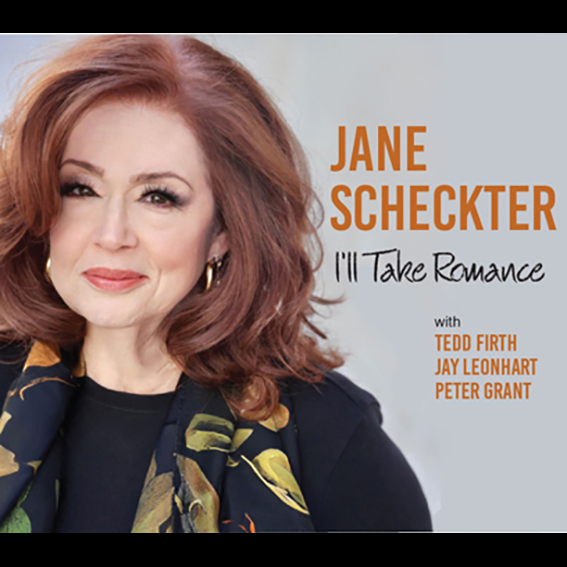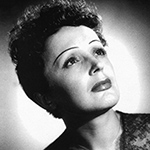Jane Scheckter
I’ll Take Romance
February 20, 2024
Reviewed by Alix Cohen

Jane Scheckter’s I’ll Take Romance is a CD that encourages replaying. Vocals surround listeners with warmth, and the arrangements by pianist Tedd Firth are graceful, rich, and collaborative. The selections carry us along without breaking auditory sway, and the musicianship is grand.
“Love, I Hear” (Stephen Sondheim) opens with only Jay Leonhart’s cool bass. Scheckter’s vocal is light and balmy, her phrasing winks, and I dare you not to grin through Leonhart’s signature scat. “I’ll Be Easy to Find” (Bart Howard) emerges longlined. The singer is vulnerable and invested; we believe her. The piano is tender, and Warren Vaché’s cornet adds chiaroscuro. The track is a slow dance and it ends with a hummed flourish, as if cursive.
During “I’ll Take Romance” (Ben Oakland/Oscar Hammerstein II), Scheckter connects the lyric lines and makes the thoughts conversational. The piano’s glissando calls to mind of a giggling brook. “Moments Like This” (Burton Lane/Frank Loesser) arrives as a country-club foxtrot. Scheckter’s soft consonants create almost visual penumbras, and Vaché’s savvy, mellow horn adds color. The song is urbane. Scheckter brings sophistication to every choice she makes, yet none are too polished to hide feeling. The artist is seasoned and womanly.
“My Foolish Heart” (Victor Young/Ned Washington) seems airbrushed, and Scheckter’s vocal brims with anticipation. Cole Porter’s “After You” dances to Peter Grant’s light percussion, and the lyrics sway and twirl. Many of Firth’s arrangements conjure footwork. “I’m Gonna Lock My Heart and Throw Away the Key” (Jimmy Eaton/Terry Shand) swings. The song is sassy. “If Love Were All” (Noël Coward) floats in like meditative breathing, and the singer’s subtle vibrato enhances her amorous sincerity. Her shoulders must rise and fall as she sighs.
“Here I Am in Love Again” (Moose Charlap/Chuck Sweeney) sounds surprised, wary, pleased, and hopeful. Scheckter’s tones are often prismatic encompassing several emotions. Piano and bass act in tandem, and the brushes etch moonlight. “You Are Not My First Love” (Bart Howard/John Peter Windsor) is a saucy Astaire tap number. In duet with Nicolas King, “Isn’t It a Pity” (George & Ira Gershwin) finds two crooners ruefully agreeing; their velvety voices work well together.
“What Is There to Say?” (Vernon Duke/E.Y. Harburg) saunters, embellished by Vaché’s luminous cornet. “What Are You Doing the Rest of Your Life?” (Michel Legrand/Alan & Marilyn Bergman) is beautifully understated. All the song choices on this CD are excellent; there isn’t one that doesn’t fit or doesn’t call for real listening.





